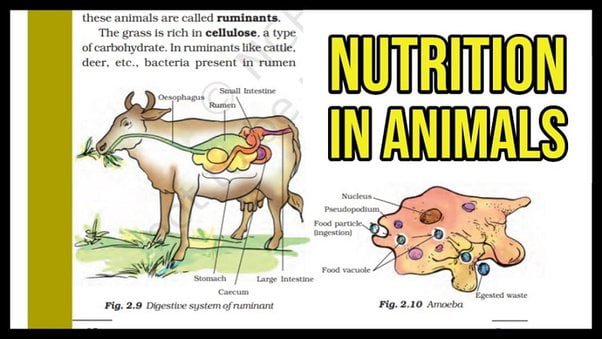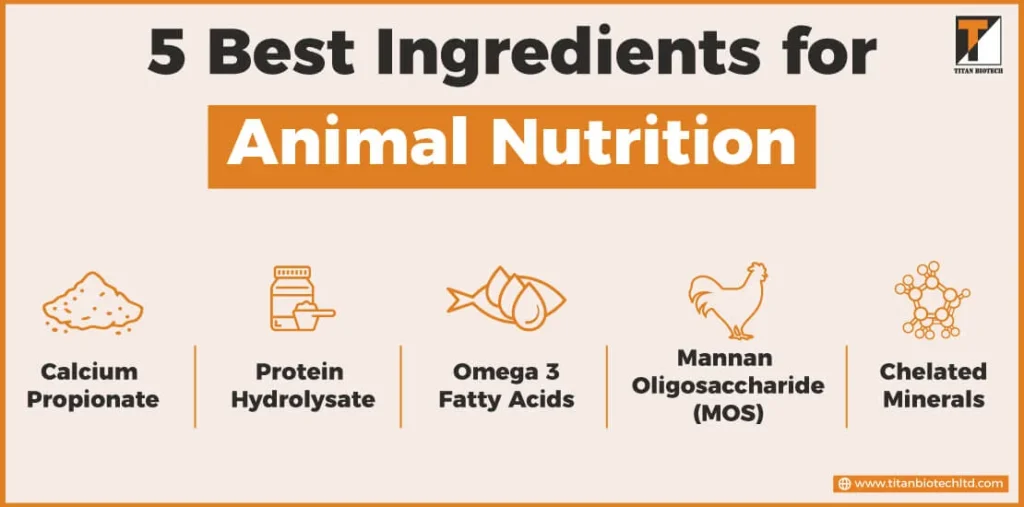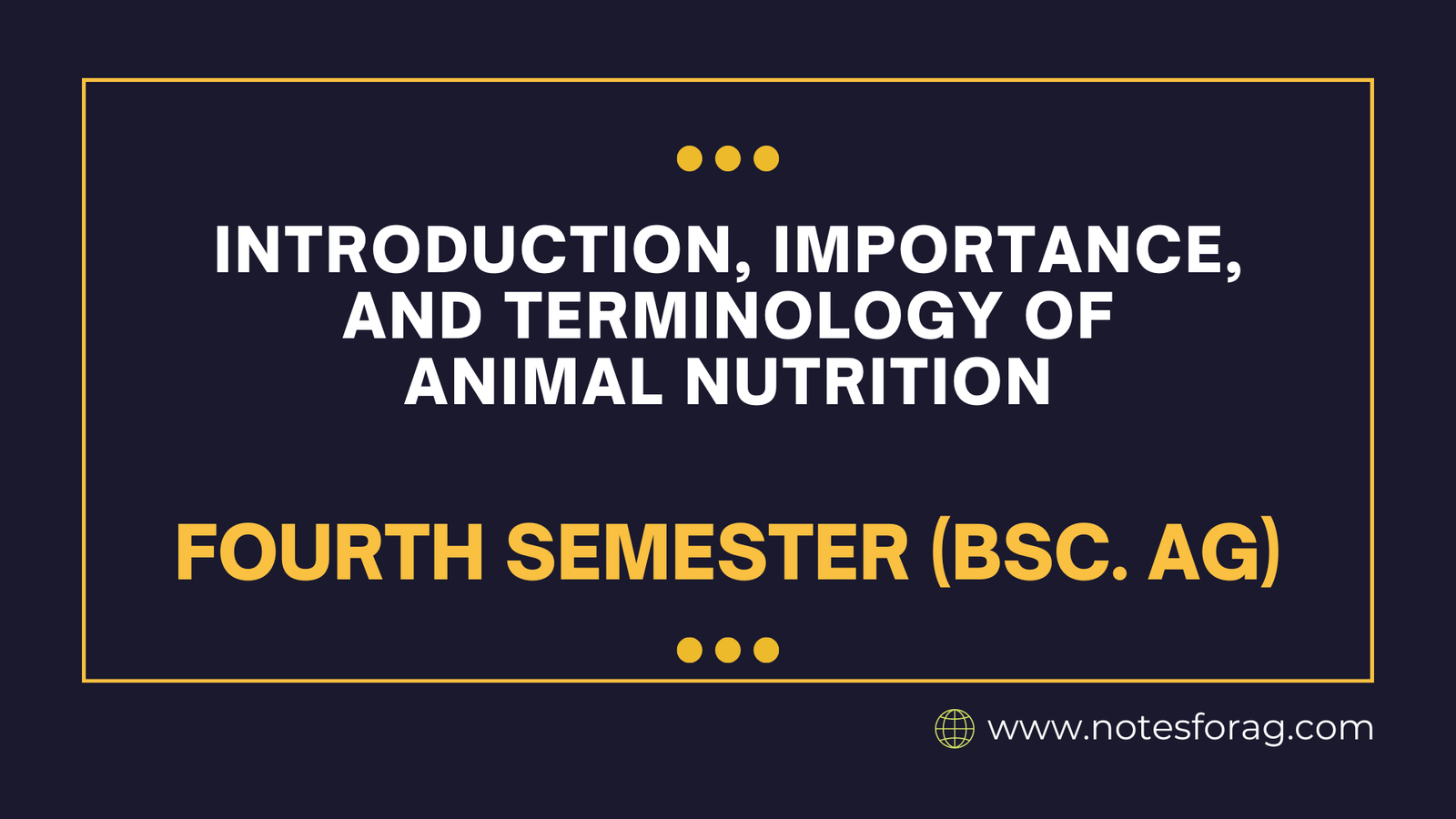Introduction to Animal Nutrients
Animal nutrition is the study of how animals utilize food to support their growth, maintenance, reproduction, and overall well-being. It explores the intricate interactions that occur between the nutrients in feed, the digestive tract of the animal, and the metabolic activities that turn those nutrients into energy and the elements of life.
Table of Contents
Importance of Animal Nutrition
Understanding animal nutrition is crucial for numerous reasons:
- Animal Health: Strong, healthy, and disease-resistant animals are the result of proper diet. Nutrient imbalances or deficiencies can cause a number of health problems.
- Productivity: The production of milk, eggs, meat, and fibre must be maximised for livestock, poultry, and other farmed animals to receive maximum nutrition.

- Sustainable Agriculture: Minimise feed waste, lessen your influence on the environment, and support sustainable farming with effective animal feeding techniques.
- Animal Welfare: Ensuring companion animals’ dietary needs leads to their happiness, longevity, and general quality of life.
- Human Health: The safety and calibre of the food items we eat are influenced by the nutrition of animals. Food safety can be improved by having an understanding of nutrient utilisation and any contamination.
Terminology of Animal Nutrition
Here are some key terms in animal nutrition:
Nutrients: These are the components of food that provide energy and building blocks for the body. They are classified into six categories:
- Carbohydrates: A primary energy source (e.g., sugars, starches)
- Proteins: Essential for building and repairing tissues (e.g., amino acids)
- Fats (Lipids): Concentrated energy sources and important for hormone production (e.g., fatty acids)
- Vitamins: Organic compounds needed in small amounts for various metabolic processes
- Minerals: Inorganic elements essential for growth, development, and bodily functions
- Water: Crucial for hydration, nutrient transport, and regulating body temperature

Feed: Any substance consumed by animals, including:
- Forages: Plants like grasses, hay, and silage
- Concentrates: High-energy feeds like grains, oilseeds, and byproducts
- Supplements: Added to feeds to provide specific nutrients (e.g., vitamins, minerals)
- Digestion is the process through which food is broken down into smaller molecules so the body can absorb them.
- Metabolism: The culmination of all chemical reactions that take place in the body, such as the synthesis of energy, the use of nutrients, and the removal of waste.
- Rations: A thoughtfully formulated mix of meals that gives an animal the nutrients it requires for its particular requirements.
- The precise amounts of each nutrient needed for an animal to flourish, depending on its age, species, breed, and physiological condition, are known as its nutritional requirements.
- A deficiency in one or more nutrients in the diet can have negative effects on health.
- An excessive intake of a certain vitamin that has negative effects is known as nutrient toxicity.
- Measuring the effectiveness with which an animal transforms feed into desired byproducts (such as meat or milk).
Gaining an understanding of these words lays the groundwork for learning and utilising the concepts of animal nutrition. We can make sure that our animal companions are healthy, productive, and happy by learning the necessary concepts and skills.
Frequently Asked Questions (FAQs)
What is the importance of animal nutrition?
Proper nutrition gives your animals the vigor to grow, develop, and reproduce, and strong immunity to fight off infections. All these advantages lead to more profitable and sustainable agriculture.
What is the most important nutrient for animals?
Protein is needed for the structuring of muscles, skin, hair and internal organs and is the only food source of nitrogen. Crude protein is the total protein content of a feed.
What are the basics of animal nutrition?
Understanding the nutritional needs of the cattle under management is the foundation of animal nutrition. Animal feeds provide the nutrients that animals need to survive. Energy, protein, macro- and microminerals, vitamins, vital fats, and water are the main categories of nutrients.
Related Articles

